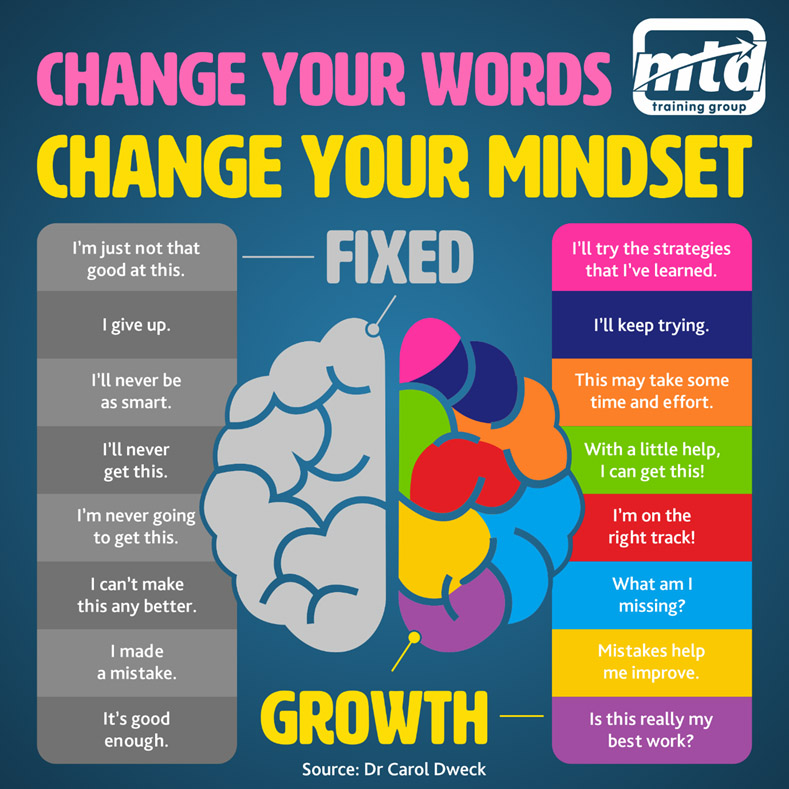Training: How To Handle And Deal With Rejection In Sales
How To Handle And Deal With Rejection In Sales

A salesperson with a fear of rejection is like a lifeguard with a fear of water. It is a serious problem. Although, faced with a constant flow of rejection, absorbing one “No” after another, it is only understandable to begin to develop a pessimistic anticipation when cold calling or even when you’re asking for the sale.
In addition, those old thoughts like, “It takes X amounts of NOs to get a YES…” and, “You should not take rejection personally…” provide little comfort.
So, let’s look at how you can handle and deal with rejection in sales.
Rejection In Sales
You may have heard of the dreaded “Fear of Rejection,” or “Phone Phobia.” Those dreaded mental and psychological blocks that hamper and even destroy sales success.
To have a fear or apprehension of rejection is a very natural human reaction.
However, as a sales professional, you do not have the luxury of succumbing to this normal human emotion.
A professional salesperson who suffers from a fear of rejection, is like a brain surgeon who suffers from a fear of the sight of blood. It is not going to work. Dealing with rejection is an integral part of your job.
So how do you, as a human being, overcome this natural fear of receiving rejection in sales especially when you are asking for the order?
Here are a few ways to help you get over it!
Understand the Fear
Let’s face it; the fear of rejection is not unfounded, in particularly if you work on a low basic salary with potential high commission rates. The problem is that rejection in sales involves the loss of money that is often substantial. The fear comes from the risk of losing income and even food on the table or the roof over your head.
Yes, as a salesperson faced with possible rejection, in your mind, it is more than just the potential loss of money. It is the possible loss of EVERYTHING: your home, food, car, family, dignity; and your lifestyle, as you know it. With so much at stake, so much to lose; of course, there is fear.
Put the Fear in Perspective
You first need to put the entire situation in its proper perceptive. You need to get a clear and definitive picture in your mind about exactly what is at risk when you ask for the order. When you ask for that sale, what is it that is truly at stake? What will you lose if the prospect says no? A clear sales mindset at this stage is essential for your success.
Not What You Think
Let’s make this simple; you’re about to ask for the sale in which you would earn a commission of £1,000. Naturally, you feel that if rejected, you lose £1,000. However, that is not true. To determine what is truly at risk, figure out the true momentary value of that ONE sales call.
What is Actually at Risk?
As an example, let’s say that you earn an average of £1,000 when you close a sale. However, with a 20% closing average, it takes you 5 closing attempts to close one sale. Therefore, each closing attempt is essentially worth only one fifth of the total, or £200.
Should the prospect buy, you earn £200, not £1,000. Does that make sense?
What Do You Lose?
Let us take this a step further though. Since you earn £200 per closing attempt, it does not matter if the prospect buys or not. You still earn £200. Every time you ask for the sale, you earn a certain amount of money, no matter what.
You Are Paid Every Time
Do you fear rejection when cold calling and making those telesales calls? Assume that you earn £200 for every closing attempt. Yet, it takes you 10 cold calls to set one appointment for that closing attempt. Therefore, you essentially earn £20 for every cold call you make regardless of the outcome of any individual call. The people who are really good at telesales do this.
Figure out your actual numbers, the true value of each closing attempt and each sales activity in your business. It does not matter if you earn £200 per close or £20. It does not matter if you make £10 per cold call or £1.
The fact is that you get paid for every rejection.
You lose nothing. You risk nothing. You get paid no matter what.

How To Handle Rejection In Sales
Rejection and fear are the most debilitating emotions a human being can experience. It can stop you emotionally and physically from carrying out even mundane tasks, depending on the level of fear experienced.
Being fearful is not something that can normally be instantly put aside. If you’re really concerned about an upcoming sales meeting, where you feel you may be put on the spot, or you haven’t prepared enough for, someone telling you that ‘it’s ok, everything will be alright’ isn’t actually very helpful, because the person suffering knows that the opposite will probably be true.
Psychologists tell us that fear of rejection is a protection mechanism that the brain employs when it realises it faces a dangerous, difficult or pain-inducing position.
Wikipedia’s definition of fear is:
‘Fear may occur in response to a specific stimulus happening in the present, or to a future situation, which is perceived as risk to health or life, status, power, security, or in the case of humans wealth or anything held valuable. The fear response arises from the perception of danger leading to confrontation with or escape from/avoiding the threat (also known as the fight-or-flight response), which in extreme cases of fear (horror and terror) can be a freeze response or paralysis.’
The fear-triggering memory or stimulus can make us appear nervous wrecks in front of decision-makers. But remembering that it is there for a purpose should help us as salespeople in coping with the situations we have to face. If you also remember that FEAR could stand for False Expectation Appearing Real, it could help you approach that situation with a little less trepidation.
What can you do if you face a situation that makes you fearful?

NHS Choices give us some tips on how to deal with those types of situations. Here are just a few:
1. What’s The Worst That Can Happen?
When you’re anxious about something, it can help to think through what the worst result could be. Even if a sales pitch, a call or a meeting goes horribly wrong, chances are that you and the world will survive. Sometimes the worst that can happen is a panic attack.
If you start to get a faster heartbeat or sweating palms, the best thing is not to fight it. Stay where you are and simply feel the panic without trying to distract yourself. Placing the palm of your hand on your stomach and breathing slowly and deeply (no more than 12 breaths a minute) helps soothe the body.
It may take a while, but eventually the panic will go away on its own. The goal is to help the mind get used to coping with panic, which takes the fear of fear away.
2. Get Real
Fears tend to be much worse than reality. Often, salespeople who have been rejected feel that it will happen on every call, but with proper cold call preparation, it may not happen that way again. Similarly, people sometimes tell themselves they’re a failure because they don’t hit their sales targets every campaign. This then makes them feel bad. But when you recognise these fears are normal, the anxiety often goes away.
3. Don’t Expect Perfection
Look for progress rather than perfection. Thinking such as, “If I’m not the best salesperson in my company, I’m a failure,” could be unrealistic and only set us up for anxiety.
Life is full of stresses, yet many of us feel that our lives must be perfect. Bad days and setbacks will always happen, and it’s essential to remember that life is messy.
4. Go Back To Basics
A good sleep, a good meal and a walk are often the best cures for anxiety. The easiest way to fall asleep when worries are spiralling through the mind can be to stop trying to nod off. Instead, try to stay awake.
Many people turn to alcohol or drugs to self-treat anxiety with the idea that it will make them feel better, but these only make matters worse. On the other hand, eating well will make you feel great physically and mentally. Also, go for a walk and take in some exercise.
5. Reward Yourself
Give yourself a treat. When you’ve met that decision-maker from hell or made that call you’ve been dreading, reinforce your success by treating yourself to a country walk, a concert, a meal out, a book, a movie, or whatever little gift makes you happy.
You will associate this success with overcoming the fear, so next time you brain will concentrate on how well you did last time and help you to look forward to the situation next time.
It may be that your fear of rejection is hindering your sales success and causing more problems than these five ideas could solve. In those cases, Cognitive Behavioural Therapy has been successful in helping people overcome fear. Because fear is more complex than just forgetting or deleting memories, an active and successful approach involves people repeatedly confronting their fears. By confronting their fears—in a safe manner—a person can suppress the fear-triggering memory or stimulus.
Above all, don’t think that you are alone in having fears. Every human being, no matter how confident they appear, will have fears, so be aware that they can be overcome with the right strategies and approaches.
A Useful Way For Dealing With Rejection
Bestselling Sales Training author Brian Tracy, came out with a very useful method for handling rejection in sales. I recommend that you use it to bring perspective to your selling.
He called it: SW, SW, SW, SW.
This stands for:
- Some Will
- Some Won’t
- So What?
- Someone Is Waiting
Some Will
Some people will say yes and will purchase your products and services. It will be right for them, and it will be the right time.
Some Wont
Conversely, some people won’t buy. It might not be right for them, or the timing might be off.
So What?
At times it may feel like it’s the end of the world, but it isn’t. The sun will rise tomorrow, and you can go again. Put things into perspective. Don’t get into a sales slump, instead shrug your shoulders, and say so what?
Someone Is Waiting
Potential customers are out there waiting to hear from you. Someone is waiting right there now and will say yes. So go out and find them.
Responding To Rejection
I find that a useful way to respond to rejection is to always have your anti-rejection levels high in the first place.
I’ve covered some sales techniques to use within this guide but I’m always keeping my mindset right and my mental approach to selling the right way so whatever is thrown at me just bounces off.
Therefore, I don’t have any peaks and troughs to how I feel. I feel good when I’m on top and I feel good when I am having a tougher time. I play the averages remember.
Some of the ways I keep my anti-rejection levels high is that I listen to a lot of sales audios, I watch a lot of sales videos, movies and read a lot of books. Here are some of our own resources that you might find useful:
- 69 Inspirational Sales Quotes To Keep You Going
- Al Pacino’s Inspirational Speech
- Best Sales Movies To Watch
I’m forever questioned why I keep watching all these resources and continually working on myself. I take my profession very seriously and so should you.
They all enable me to develop a growth mindset which means I am always looking for the positive in all situations and looking to take all experiences as an opportunity to develop, learn and grow.
Below is one of my favourite growth mindset images.

Faced with rejection you can easily destroy your self-worth and confidence with negative self-talk. You can quickly fall into a fixed mindset about it all with negative self-talk such as:
“I give up”
“I’m just not that good at this”
“I’m never going to get this”
These are never going to help you. Instead, you need to train your brain to rephrase and remodel negative thoughts like this:
Instead of “I give up” say “I’ll keep trying”
Instead of “I’m just not good at this” say “I’ll try the strategies that I’ve learned”
Instead of “I’m never going to get this” say “I’m on the right track”
Most Selling Skills Training and Telesales Courses that you will attend do not cover areas like this and they should. Our programmes do cover them because we recognise the importance of being able to deal with and handle rejection. It’s a big part of a sales role so why shouldn’t it be covered!
You can have all the techniques and strategies in the world. The bottom line is that you will not win every deal. You will be rejected. So, you need to be able to cope with it and move on.
Make your exam here: